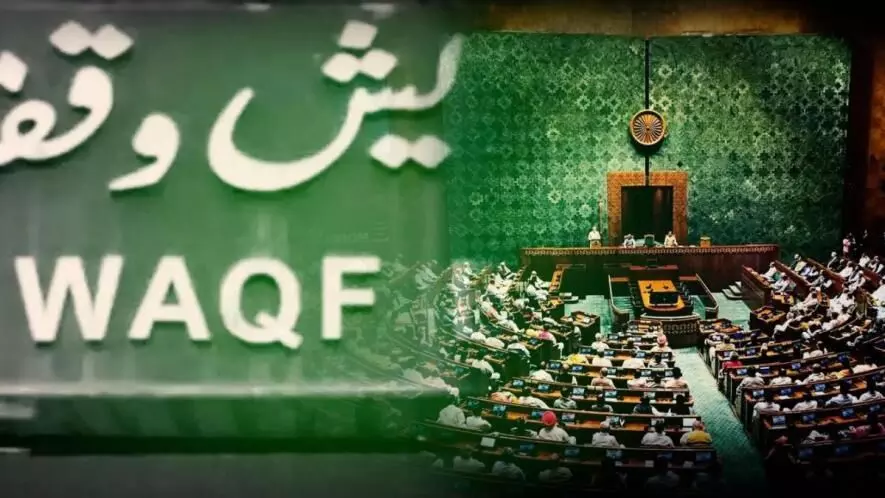TRENDING TAGS :
Rebooting Waqf: A Reform That Was Long Overdue
The Waqf Act and its recent amendments have ignited debate in India. Explore the history, legal power, and controversies surrounding Waqf properties and the implications of recent reforms.
Waqf has recently become a hot topic of debate. While it is technically a matter of property, its association with Muslims inevitably transforms it into a religious issue. And in our country, anything religious can easily escalate into something far more intense — that’s no secret. A bill aimed at amending the Waqf Act has been passed, and the law was notified swiftly. Now, we are witnessing political drama, protests, and even violence.
Waqf: A Deep-Rooted Controversy
Waqf has always been a contentious subject, yet it has managed to persist robustly over time. The exact extent of Waqf properties in India is unknown, but some estimates are staggering.
Staggering Estimates of Waqf Properties
There are claims that more than half of the land in Jaunpur is Waqf property, that nearly all the hills in Kannauj are under Waqf, that Waqf owns nearly 13% of land in Ahmedabad, 5% in Kolkata, and more than 8% in Patna. It is believed that after the railways and defense, Waqf is the third-largest property owner in the country.
What is Waqf?
The word “Waqf” comes from Arabic and means a permanent dedication of movable or immovable property by an individual for purposes recognized as pious, religious, or charitable under Muslim law.
Nature of Waqf Property
In simple terms, Waqf is property dedicated to religious and charitable causes. Under Islamic law, Waqf property is permanently dedicated to Allah. Once a property is declared Waqf, it remains Waqf forever. It becomes sacred, irrevocable, and cannot be sold, mortgaged, inherited, or transferred.
History of Waqf in India
The history of Waqf in India can be traced back to the early days of the Delhi Sultanate. As the Delhi Sultanate and subsequent Islamic dynasties flourished in India, the number of Waqf properties grew.
British Opposition to Waqf
During British rule, a dispute over a Waqf property reached the Privy Council in London. Four British judges deemed the concept of Waqf to be the worst and most damaging, and they invalidated it. However, their decision was not accepted in India. The Muslim Waqf Validating Act of 1913 revived the institution of Waqf in India.
Legal Authority and Exemptions of Waqf
The Waqf Act was enacted on November 22, 1995. Under this law, a Waqf Tribunal is considered a civil court. Its decisions are binding and final. The decisions of the Waqf Tribunal override those of civil courts.
Unchecked Powers of the Waqf Board
According to the Waqf Acts of 1965 and 1995, if the Waqf Board claims a property, its surveyors conduct an inspection and, if they believe the property belongs to Waqf, they record it as such. This recently occurred in Bihar, where an entire village was declared Waqf property.
Global Context: Waqf in Other Nations
While Waqf is firmly established in India, many Muslim-majority countries do not even recognize the concept. Countries like Turkey, Libya, Egypt, Sudan, Lebanon, Syria, Jordan, Tunisia, and Iraq have no Waqf system.
Waqf in Saudi Arabia
In Saudi Arabia — considered a conservative Islamic nation — all Waqf properties are counted and registered, totaling 33,229 endowments.
Judicial and Legislative Stand on Waqf
Not long ago, the Supreme Court of India refused to hear a petition challenging the constitutionality of the Waqf Act, 1995, stating that such a law cannot be contested via a single petition.
Special Legal Privileges
Urban land ceiling laws may apply to all city areas, but not to Waqf properties. No other community, Hindu, Christian, Parsi, or Jewish, enjoys such privileges. After independence, India abolished zamindari, jagirdari, and princely states. But Waqf remained untouched.
The New Amendment and Road Ahead
Now, the Waqf Act has been amended, and the new law has been notified despite stiff opposition, particularly from the INDIA alliance. These reforms are significant and long overdue.
A Call for Legal Reforms
The changes must now reflect at the ground level. Centuries have passed since the end of Islamic sultanates, how much longer will we carry the weight of their traditions in law of the land matters?
Conclusion: Time to Move Forward
It’s time to move forward.
(The author is a journalist) Email: [email protected]


